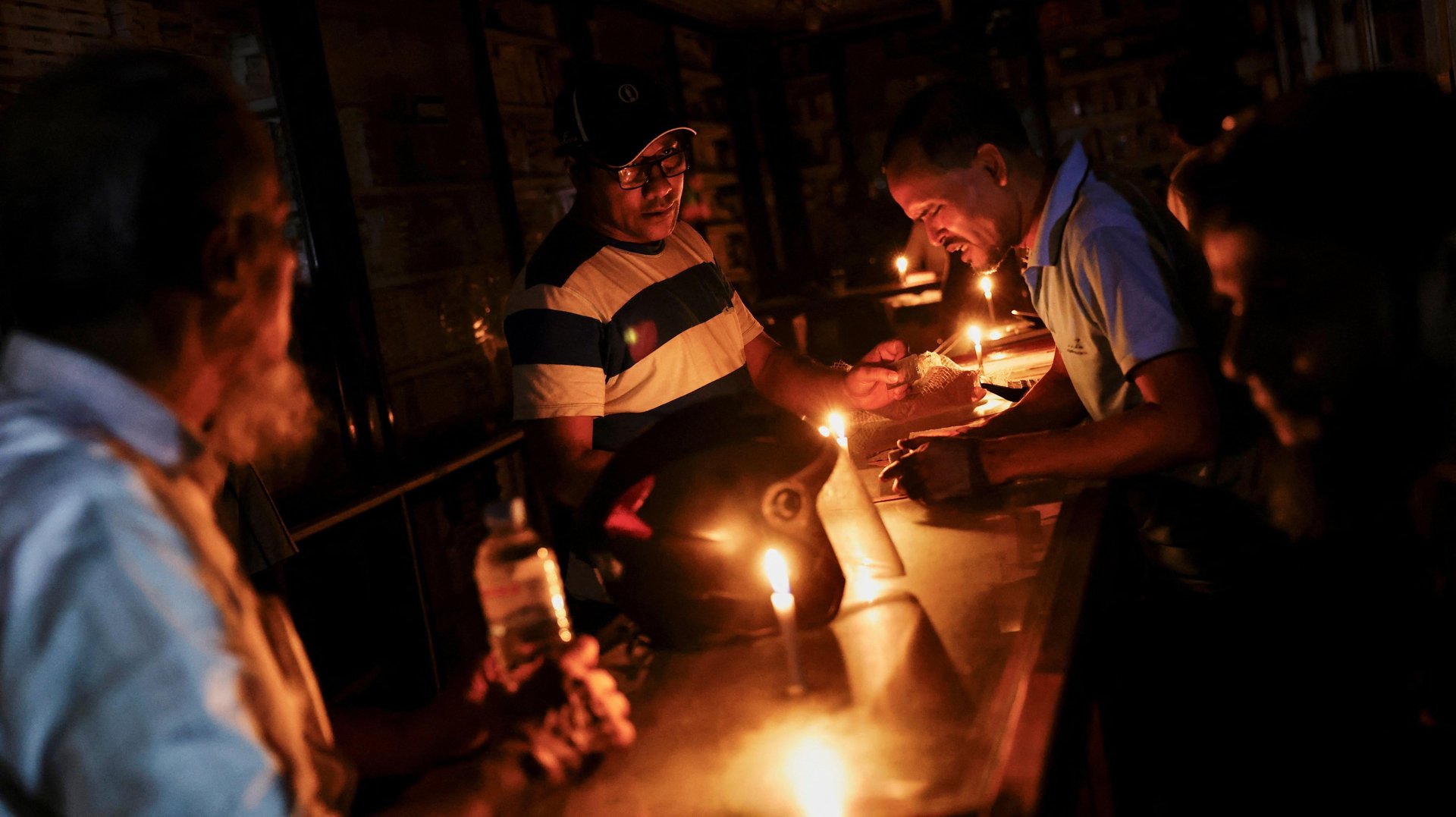Power-hungry Europe is leaving developing countries starving for electricity
Bangladesh's massive blackout was the most recent example of the consequences of Europe's mad dash for gas

Bangladesh suffered its worst blackout since 2014 on Tuesday (Oct. 4), a symptom of disrupted fuel supplies and a preview of what other countries might face in the coming months.
Around 80% of the country faced power outage starting at 2 pm local time, Bangladesh Power Development Board official Shameem Hasan told Reuters. Traffic came to a standstill, shopkeepers tried to work with flashlights, and people flocked to fuel stations to get diesel to run generators.
“Tuesday’s blackouts happened after a transmission line was overloaded, “creating a cascading effect on other lines,” Yeakub Elahi Chowdhury, executive director of Power Grid Co. of Bangladesh, told Bloomberg. “We instantly went into a protection mode to prevent it from becoming a bigger problem.”
It took seven hours for the electricity to be fully restored. But even when the power was back, the power woes weren’t entirely gone. This wasn’t an anomalous event.
Bangladesh’s power crisis has Europe to blame
For the past couple of months, Bangladesh has resorted to frequent power cuts to ration supplies amid high global fuel prices. Extreme measures have included shutting school an extra day each week and getting government offices and banks to shorten their work days.
Even before the war broke out, gas supplies heading to Asia were being diverted to Europe. Now with Russia-Ukraine war squeezing supply, the richer European nations are getting dibs on whatever is up for grabs. With winter and a cap on Russian fuel imports approaching, European buyers will look to stock up on even more LNG.
This is coming at the cost of not just Bangladesh, but several developing nations. India is grappling with its worst power crisis in 6 years while struggling to find suppliers in international markets. Sri Lanka and Bangladesh are also finding it difficult to source gas because of shortages in the EU pushing up prices.
Over a decade ago, Pakistan had forged long-term contracts with foreign liquified natural gas (LNG) suppliers in Italy and Qatar specifically to insulate itself from volatile prices. But now, these firms continue to serve lucrative European markets while defaulting on Pakistan. The government even took Italian energy firm Eni and Swiss commodity trader Gunvor to court seeking $40 billion in damages. Still, the country is failing to attract LNG bids because producers are overcommitted to European countries as well as China and Japan—richer countries that are able to pay higher prices. All this while millions of citizens continue to live without electricity for more than 12 hours a day.
The crises after the power crisis
Looking at cash-strapped Pakistan, power outages’ knock-on effect on the economy will be felt across various sectors.
🧑🌾 It’s getting increasingly difficult to produce fertilizer for livestock, pushing food prices up
📶 Cell phone towers that are using backup generators to sustain service through the blackouts are running out of fuel
🚆 The fuel shortage is bringing the country’s railway services to a standstill
“Load-shedding” goes to Europe
Even after scraping the bottom of the gas suppliers’ barrel, European countries could be looking at shortages this winter. Several governments have already warned that people may have to deal with timed blackouts, take shorter showers, and use less heating.
To developing countries that have always struggled to get and distribute power, the practice sounds overly familiar. To conserve and ration resources while protecting power grids, the authorities often cut off power for some people for some time with prior notice. India even has a name for it: “load-shedding.”
